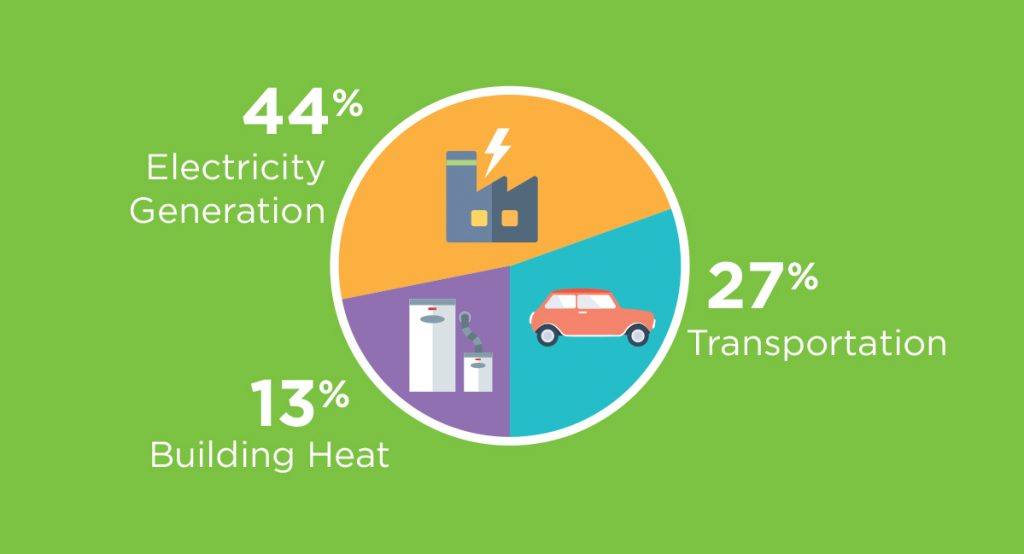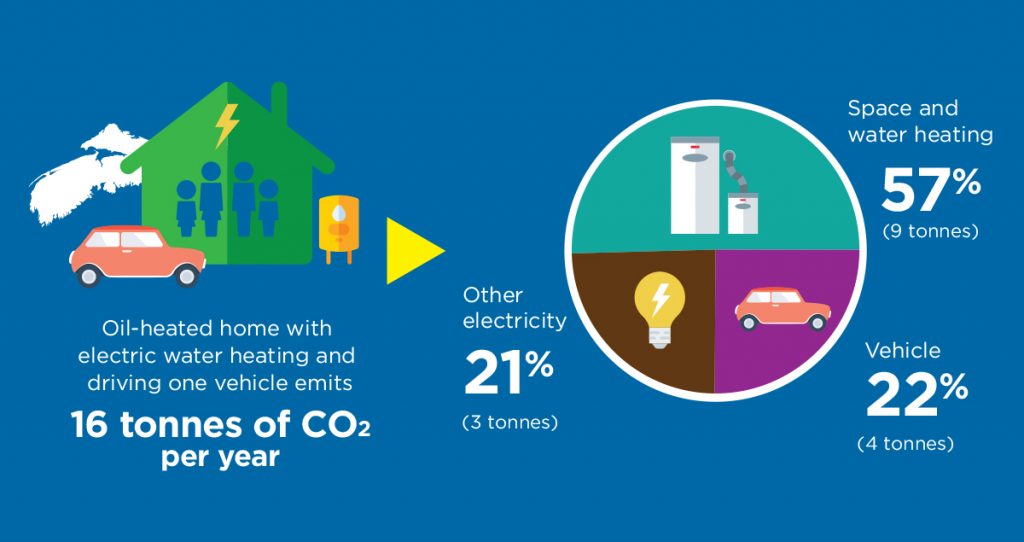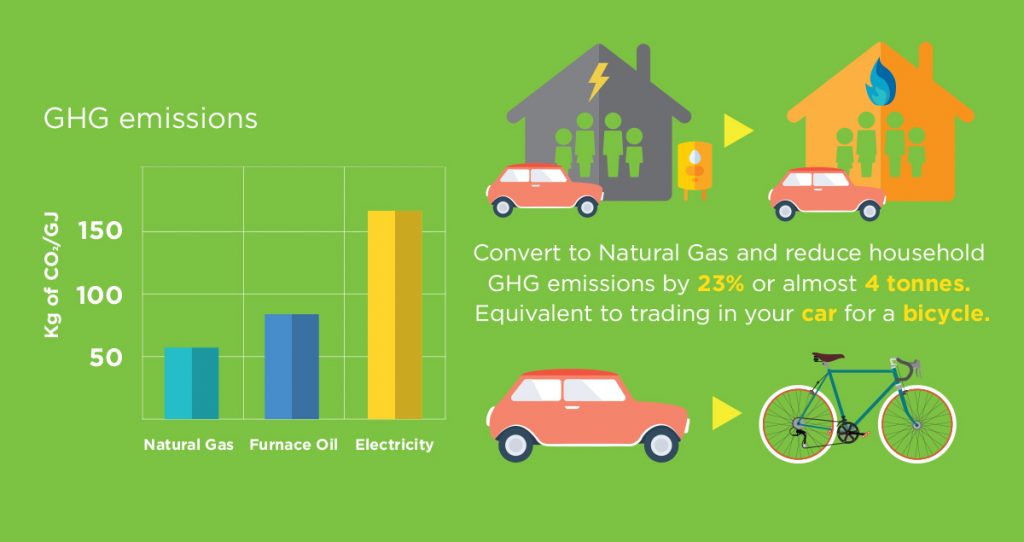Climate change is real and we’re already feeling the impacts here in Nova Scotia. One of the ways that we can reduce the impact of climate change is to reduce the greenhouse gas (GHG) emissions that we produce. Did you know that over 80% of total GHG emissions in Nova Scotia are produced by 3 sources – electricity generation (44%), transportation (27%), and building heat (13%)?

Households contribute almost half of Canada’s total GHG emissions. An average 4 person household in Nova Scotia living in an oil-heated home with electric water heating and driving one vehicle emits about 16 tonnes of GHGs each year. Space and water heating accounts for about 57% of total GHG emissions (9 tonnes), other electricity accounts for about 21% (3 tonnes), and your vehicle accounts for about 22% (4 tonnes).

Households can reduce GHG emissions by using less energy and shifting the energy we use to sources that emit fewer GHGs. The GHG emissions from natural gas are 38% lower than furnace oil and 68% lower than electricity. So, if you live in an oil-heated home with electric water heating and convert both to natural gas, you can reduce your total household GHG emissions by about 23%, or almost 4 tonnes – equivalent to trading in your gasoline vehicle for a bicycle!


